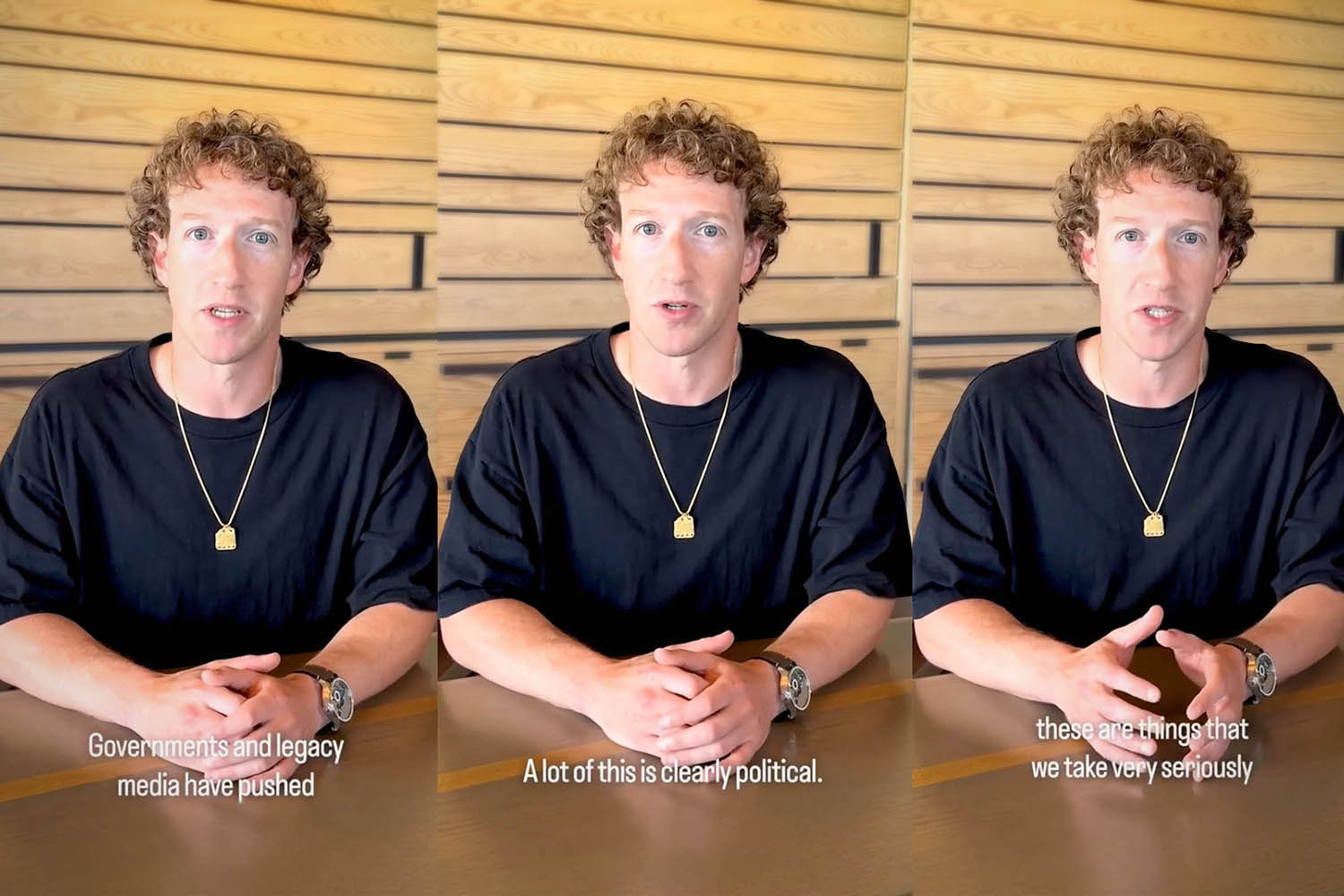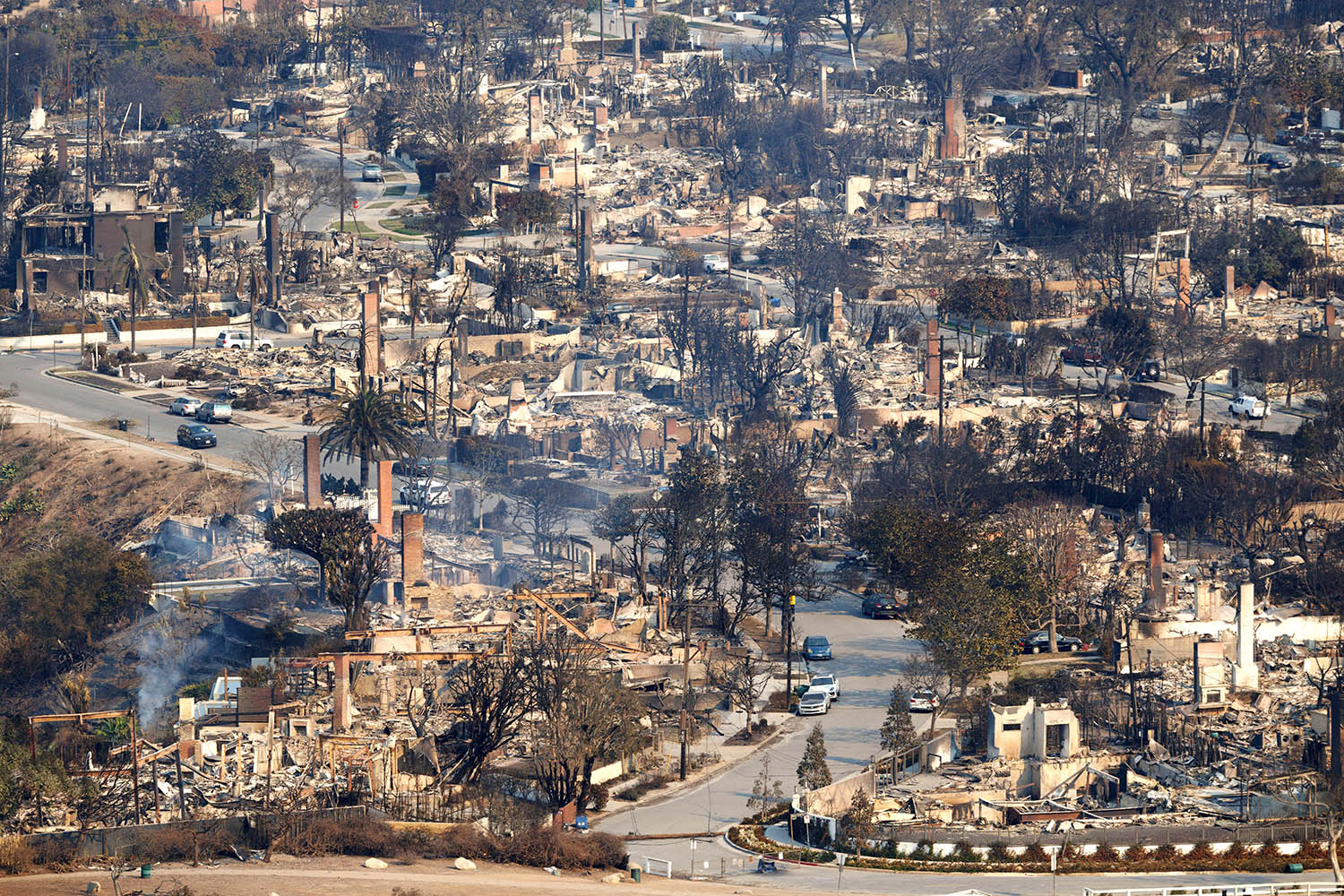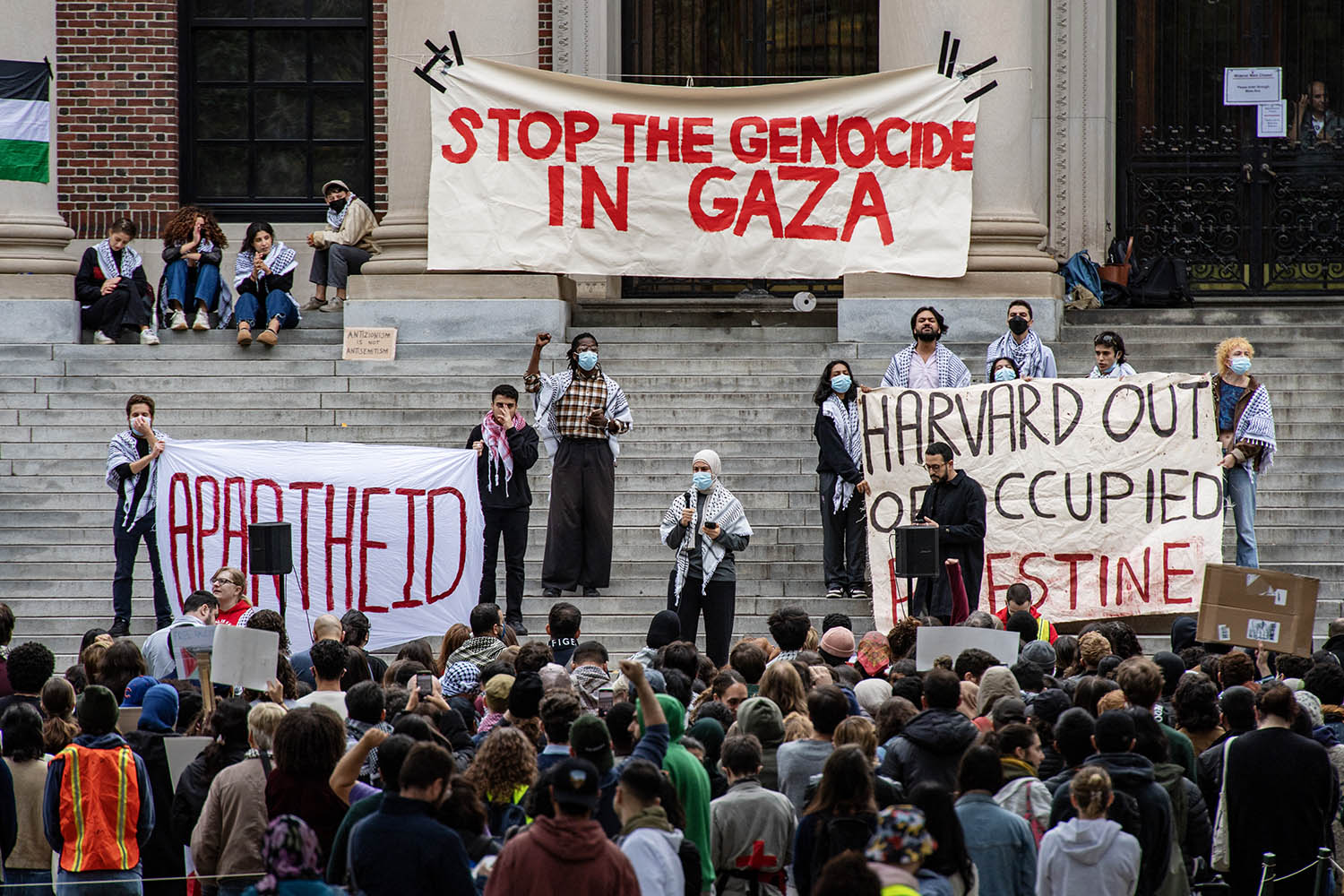
The Facebook founder ditches fact-checking for a global war on regulation
It’s not true that social distancing was part of a plan to impose sharia law, or that Joe Biden worked out of a fake White House, or that Covid vaccines cause Spanish flu.
So what? Stranger ideas get believed online, but none of these gained much traction thanks partly to a single third-party fact checker (one of about 40,000 hired at a cost of over $100 million) who debunked them on Facebook. As of last week Mark Zuckerberg is ditching those fact checkers, with serious implications for
- truth, because the arbiters of what’s verifiable on a platform with 3 billion users are to be its users rather than professionals;
- power, because Meta has enlisted the US government in a fight against other governments’ efforts to regulate social media; and
- money, because social media’s money-tree business model depends on the outcome of that fight.
Meta reverse. Four months ago Donald Trump threatened Zuckerberg with life in prison if Meta took down information to help Democrats in the US election. Now, besides ending fact-checking, Zuckerberg is
- abandoning diversity hiring goals and the post of chief diversity officer at Meta;
- re-tuning algorithms on Facebook, Instagram and Threads to allow more political content; and
- replacing rules on hate speech with rules on “hateful conduct”, raising the bar on language permitted in the name of free speech.
New guidelines will allow, for example, posts that state “gays are not normal”, “women are crazy” and “trans people are freaks”.
Go tell Joe. In a three-hour interview on Friday with Joe Rogan, Zuckerberg said Meta was restoring users’ “power to share”.
Share what? Not quite anything, because Meta’s platforms will still employ in-house content moderators and introduce a user-based “community notes” system borrowed from X. But Zuckerberg admits there’ll be “more bad stuff” online as a result of his changes. If that includes even a fraction of what Facebook’s fact-checking partners used to take down, it will include footage of violence, terrorism and pornography so traumatic to view that those employees’ terms and conditions admitted they were at risk of PTSD.
The unwisdom of crowds. The community notes system is meant to fix what Zuckerberg claims is an erosion of trust in “biased” third-party fact checkers. It’s true there are groups online who don’t trust fact-checkers, and these people may be more likely to trust other users.
But…
- Meta gave no sign of concern about its fact-checking programme for eight years until Trump won last year’s election.
- X’s experiment with community notes isn’t promising: misinformation gets seen 13 times more than any notes attached to it, the Centre for Countering Digital Hate found.
- Three quarters of notes suggested by users aren’t displayed at all because they don’t meet the platform’s threshold for inclusion, because…
- fake news gets six times more engagement than real, according to a study by the University of Grenoble.
Bad outcomes. Aside from a “tidal wave” of fresh disinformation foreseen by Imran Ahmed, founder of the CCDH, lies spread on Facebook – and unevenly policed – have already been shown to have weakened the response to Covid, undermined democratic processes the world over and helped the army in Myanmar in its ethnic cleansing of the Rohingya Muslim minority.
Good business? Possibly. The social media business model of global advertising against free content with minimal legal responsibility is in rude health in the US thanks to Section 230 of the Communications Act, which shields platforms from being classified as publishers.
- Not so in the EU, where Zuckerberg complains Brussels has fined US tech firms $30 billion in the past 20 years;
- or in the UK, which now asserts the power to fine them up to 10 per cent of global turnover for breaches of its consumer protection laws.
New friends. Hence Meta’s about-turn. Zuckerberg has explicitly solicited Trump’s help defending firms like his against foreign governments to preserve the tech sector as a US “strategic advantage”. In return he’s promised close alignment with the new administration.
What’s more… One way or another, Trump’s pleased. Asked last week if he thought the Meta-morphosis was a result of his prison threat, he replied: “Probably.”
Additional reporting by Barney Macintyre, Xavier Greenwood and Stephen Armstrong.












